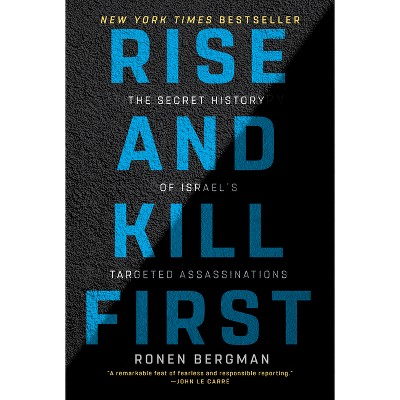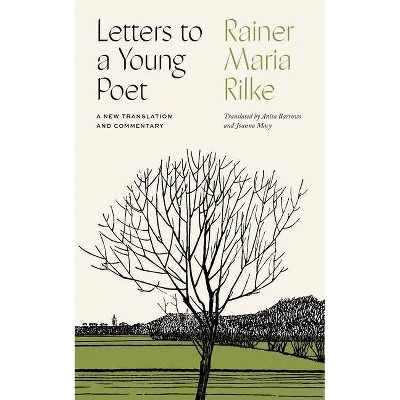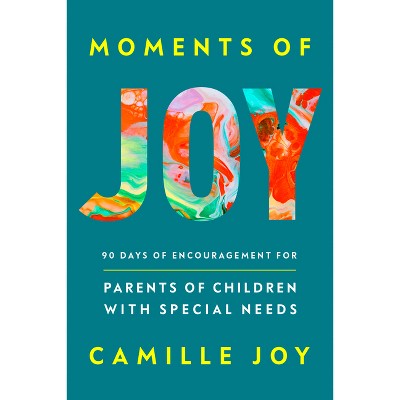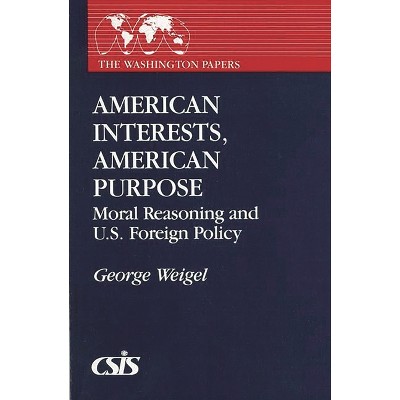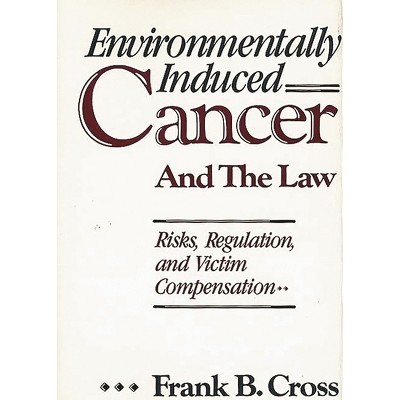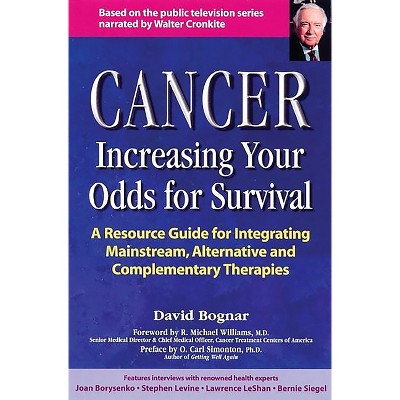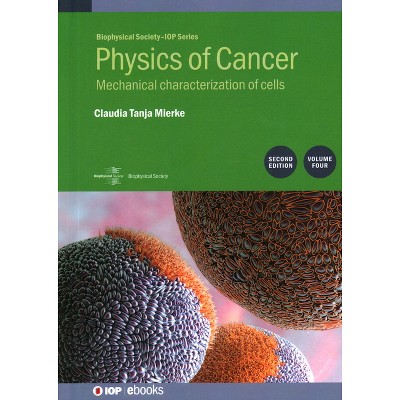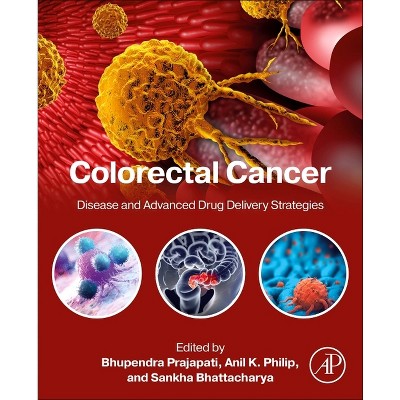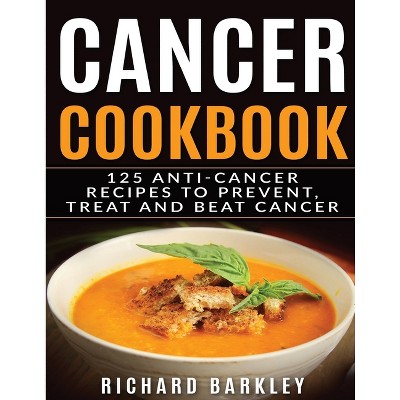Sponsored

Earth Cancer - by Van B Weigel (Hardcover)
In Stock
Sponsored
About this item
Highlights
- From the pollution-infested landscape of urban areas to the leached soil of decimated rain forests, the human race has exerted its will on the environment with reckless abandon.
- About the Author: VAN B. WEIGEL is Associate Professor of Ethics and Economic Development at Eastern College in Pennsylvania.
- 192 Pages
- Social Science, Human Geography
Description
About the Book
From the pollution-infested landscape of urban areas to the leached soil of decimated rain forests, the human race has exerted its will on the environment with reckless abandon. In effect, humankind has become a most dangerous type of Earth Cancer. Now this rampant form of cancer is threatening the very existence of life on this planet. Is it our divine right to control all species and habitats? Does our insatiable hunger for expansion and disregard for the environment represent a collective death-wish by our species? If so, how can we change our fate? This extraordinary book confronts these questions by studying the complex relationship between ethics, economics, and ecology. More than a chronicle of environmental devastation, Earth Cancer challenges human beings to examine and redefine their economic, social, and moral values in a way that respects the interdependence of the biosphere. Only when this level of self-understanding is reached can humans realize their full potential as intelligent species and preserve the earth's ecology for future generations.
The facts are shocking. Every day on Earth, approximately 75 plant and animal species are driven into biological extinction. Forests are being destroyed and the wealth of our planet's resources are being depleted at an astounding rate. The planet as we know it is facing a barren future unless the human race can halt the spread of a cancer that holds Earth's fate in the balance. To fight back, we must come to terms with several harsh realities: 1. Human beings must realize that our destiny is inextricably linked to the preservation of other species and environmental resources. 2. We must adjust our perspective to view the human race as an equal, interdependent part of the biosphere, not as ruler over it. 3. We must temper our seemingly unquenchable thirst for progress with a more holistic vision for the long-term survival of our species. In short, we must confront the source of this deadly earth cancer--ourselves.
Earth Cancer sounds a wake-up call for humanity. Weigel contends that humans have constructed a self-defeating Berlin Wall between themselves and other species. This wall is built from arrogance toward the environment as symbolized by the systematic destruction of habitats and the reckless generation of waste. As our blind pursuit of economic development and expansion continues to prevail over ecological concern, the wall grows larger and the devastation more prolific. Weigel explains that humans face a moral and ethical imperative to stem this tide before it is too late. Because the fate of so many species is dependent upon the decisions we make, the ideal of interdependence with all other members of the biosphere must be embraced. This important book provides new insight about our attitude toward the environment and suggests that a change in our priorities could mean a change in our destiny.
Book Synopsis
From the pollution-infested landscape of urban areas to the leached soil of decimated rain forests, the human race has exerted its will on the environment with reckless abandon. In effect, humankind has become a most dangerous type of Earth Cancer. Now this rampant form of cancer is threatening the very existence of life on this planet. Is it our divine right to control all species and habitats? Does our insatiable hunger for expansion and disregard for the environment represent a collective death-wish by our species? If so, how can we change our fate? This extraordinary book confronts these questions by studying the complex relationship between ethics, economics, and ecology. More than a chronicle of environmental devastation, Earth Cancer challenges human beings to examine and redefine their economic, social, and moral values in a way that respects the interdependence of the biosphere. Only when this level of self-understanding is reached can humans realize their full potential as intelligent species and preserve the earth's ecology for future generations.
The facts are shocking. Every day on Earth, approximately 75 plant and animal species are driven into biological extinction. Forests are being destroyed and the wealth of our planet's resources are being depleted at an astounding rate. The planet as we know it is facing a barren future unless the human race can halt the spread of a cancer that holds Earth's fate in the balance. To fight back, we must come to terms with several harsh realities: 1. Human beings must realize that our destiny is inextricably linked to the preservation of other species and environmental resources. 2. We must adjust our perspective to view the human race as an equal, interdependent part of the biosphere, not as ruler over it. 3. We must temper our seemingly unquenchable thirst for progress with a more holistic vision for the long-term survival of our species. In short, we must confront the source of this deadly earth cancer--ourselves. Earth Cancer sounds a wake-up call for humanity. Weigel contends that humans have constructed a self-defeating Berlin Wall between themselves and other species. This wall is built from arrogance toward the environment as symbolized by the systematic destruction of habitats and the reckless generation of waste. As our blind pursuit of economic development and expansion continues to prevail over ecological concern, the wall grows larger and the devastation more prolific. Weigel explains that humans face a moral and ethical imperative to stem this tide before it is too late. Because the fate of so many species is dependent upon the decisions we make, the ideal of interdependence with all other members of the biosphere must be embraced. This important book provides new insight about our attitude toward the environment and suggests that a change in our priorities could mean a change in our destiny.From the Back Cover
From the pollution-infested landscape of urban areas to the leached soil of decimated rain forests, the human race has exerted its will on the environment with reckless abandon. In effect, humankind has become a most dangerous type of "Earth Cancer". Now this rampant form of cancer is threatening the very existence of life on this planet. Is it our divine right to control all species and habitats? Does our insatiable hunger for expansion and disregard for the environment represent a collective death wish by our species? If so, how can we change our fate? This extraordinary book confronts these questions by studying the complex relationship between ethics, economics, and ecology. More than a chronicle of environmental devastation, Earth Cancer challenges human beings to examine and redefine their economic, social, and moral values in a way that respects the interdependence of the biosphere.About the Author
VAN B. WEIGEL is Associate Professor of Ethics and Economic Development at Eastern College in Pennsylvania. He is the author of A Unified Theory of Global Development (Praeger, 1989), a Choice Outstanding Academic Book.Shipping details
Return details
Frequently bought together
Trending Non-Fiction






